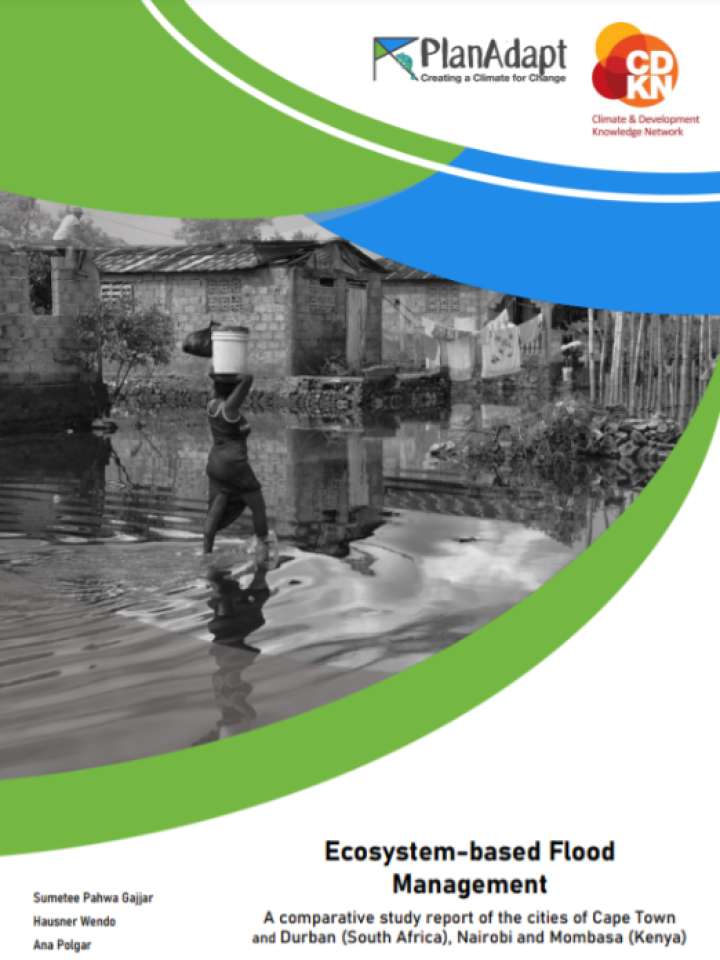Ecosystem-based flood management: A comparative study report of the cities of Cape Town and Durban (South Africa), Nairobi and Mombasa (Kenya)
This report showcases good practices in flood management approaches by the cities of Cape Town, Durban, Nairobi and Mombasa to provide concise information on disaster risk reduction practices, with a specific focus on ecosystem – and nature-based solutions. It aims to give recommendations for Accra officials to foster exchange between Accra-based District and Municipal officials with selected cities in South Africa or Kenya. Flooding is a severe threat for urban settlements in cities in the Global South. Increasing urbanization, climate change, poor urban planning and weak implementation of urban plans increase the risk of urban floods. Especially in informal settlements, the impacts are severe. In African cities, the informal settlements characterized by poor dwelling and infrastructure are mostly affected by urban floods. There is a broad range of interventions and measures to reduce flood risk at different scales, which span from grey infrastructure measures to green approaches. Ecosystem-based and nature-based solutions offer measures with multiple benefits for the environment, society and biodiversity.
This report found that cities in South Africa and Kenya face similar drivers that increase flood risk, especially for the vulnerable communities, such as urbanisation patterns, building on unsuitable land and greater climate variability. However, the study shows that local contexts and responses are very grounded in the particularities of experiences, and social and network configurations that play out when translating national policies into local level plans and policies. The study found a wide breadth of ecosystem and nature-based solutions, suitable to the scale of intervention, and also an interesting array of reactive community responses, that provide short-term respite from some of the impacts of flood events.
Explore further
